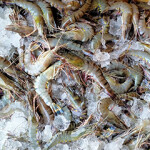NMFS selects 13 US Northeast scallop research projects worth USD 12.5 million

Sea scallop surveys, bycatch reduction, and sea turtle interactions are on a list for the 2021-22 Northeast research set-aside program for scallop science.
Set up by the New England Fishery Management Council in 1999, the cooperative science effort between researchers and fishermen was one outcome of the scallop fishery crisis when abundance declined in the mid-1990s. Two decades later, scallops are the richest East Coast fishery, with a system of rotating area management and close collaboration between NMFS, academic researchers, and the industry.
The set-aside program is a wish list of research needs from the council and carves out a small part of the fishery’s landings – valued around USD 570 million (EUR ) in 2019 – allocating it to boats carrying out the projects. For the 2021-2022 program, that will be about USD 12.5 million (EUR ) in scallops brought to the docks, with USD 3 million (EUR ) from those paying for the science work and USD 9.5 million (EUR ) for the fishermen, according to a summary from NMFS.
“The RSA program improves our scientific understanding of sea scallops and monkfish, which directly contributes to their sustainable management,” Northeast Fisheries Science Center Director Jon Hare said in a statement outlining the plan.
Researchers and fishermen partners compete in the NMFS selection process for the program. The agency will finalize the winners later this month. The top choices include:
- Cooperative high-precision dredge survey to assess the Mid-Atlantic sea scallop resource area in 2021 and 2020: Virginia Institute of Marine Science, David Rudders, and Sally Roman, with William Wells and Juan Araiza of Seaford Scallop Company.
- Video Trawl Survey of Closed Area II: University of Massachusetts Dartmouth, School of Marine Science and Technology, Kevin Stokesbury.
- Understanding the impacts of the Atlantic sea scallop fishery on loggerhead sea turtles: Coonamessett Farm Foundation, Samir Patel and Liese Siemann, with Ronald Smolowitz of CFF; Jim Gutowski of Viking Village Fisheries, Barnegat Light, New Jersey; and Roxanna Smolowitz, Roger Williams University.
- Artificial light as a tool to reduce bycatch in the sea scallop dredge fishery: Virginia Institute of Marine Science, David Rudders, and Sally Roman, with Tom Rossiter and Dan Watson of SafetyNet Technologies; Charlie Quinn, owner of the Celtic, and Eric Enoksen, Nordic Fisheries.
- Studying seed scallop habitat preferences using automated detection algorithms and machine learning: Coonamessett Farm Foundation, Liese Siemann and Tasha O’Hara, with Anthony Hoogs and Matthew Dawkins of Kitware.
- Continued testing into how cutting bar modifications can reduce bycatch and increase catch efficiency in the Atlantic sea scallop dredge fishery: National Fisheries Institute, Inc., Jason Morson, and Eleanor Bochenek, Rutgers University; Douglas Zemeckis, Rutgers Cooperative Extension; Geoffrey Cowles, UMass Dartmouth, School of Marine Science and Technology.
- Seasonal survey for the Atlantic sea scallop fishery on the eastern part of Georges Bank: Coonamessett Farm Foundation, Luisa Garcia, Liese Siemann, and Farrell Davis.
- Developing an effective foot sweep to reduce flounder bycatch in scallop dredges using computational fluid dynamics and field testing with paired dredges: Coonamessett Farm Foundation, Liese Siemann and Farrell Davis, with Mike Pol, Massachusetts Division of Marine Fisheries; Ronald Smolowitz, CFF; Tor Bendiksen, Reidar’s Manufacturing Inc.; Timothy Lenling, Dockside Repairs, Inc.; Ronnie Enoksen, Eastern Fisheries; Danny Eilertsen, Nordic Fisheries; Sam Martin and Peter Hughes, Atlantic Cape Fisheries.
- An optical survey for scallop density, distribution, and growth in open-bottom scallop assessment models areas of the Mid-Atlantic including Block Island, Long Island, New York Bight nearshore, and Delmarva: Coonamessett Farm Foundation, Tasha O’Hara, Liese Siemann, and Luisa Garcia, with Jose Correia, Arnie DeMello of the Kathy Marie.
- N-Viro dredge phase II, increasing scallop catch efficiency of a low bycatch, low habitat impact, and fuel-efficient scallop dredge: Commercial Fisheries Research Foundation, N. David Bethoney, and Michael Long; Michael Marchetti, captain of the Mister G and Christopher Roebuck, captain of the Karen Elizabeth and Yankee Pride.
- Broadscale dropcam survey of the Georges Bank sea scallop resource: UMass Dartmouth, School of Marine Science and Technology, Kevin Stokesbury.
- Empowering fishermen to collect essential data; piloting the research fleet approach in the Atlantic sea scallop fishery: Commercial Fisheries Research Foundation, N. David Bethoney.
- Developing a Tool to Quantify the Impact of the Scallop Fishery on Loggerhead Sea Turtles: Coonamessett Farm Foundation, Liese Siemann and Samir Patel.
Photo courtesy of NOAA






Share